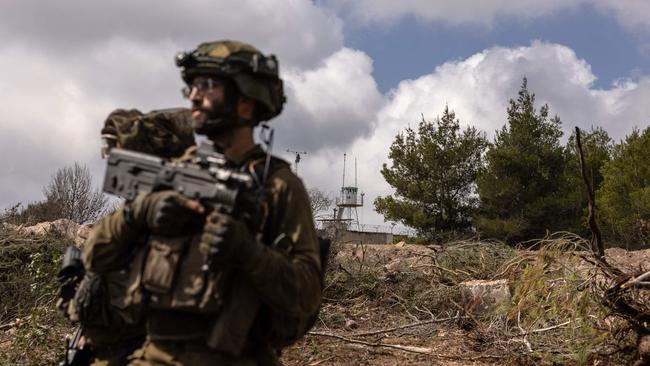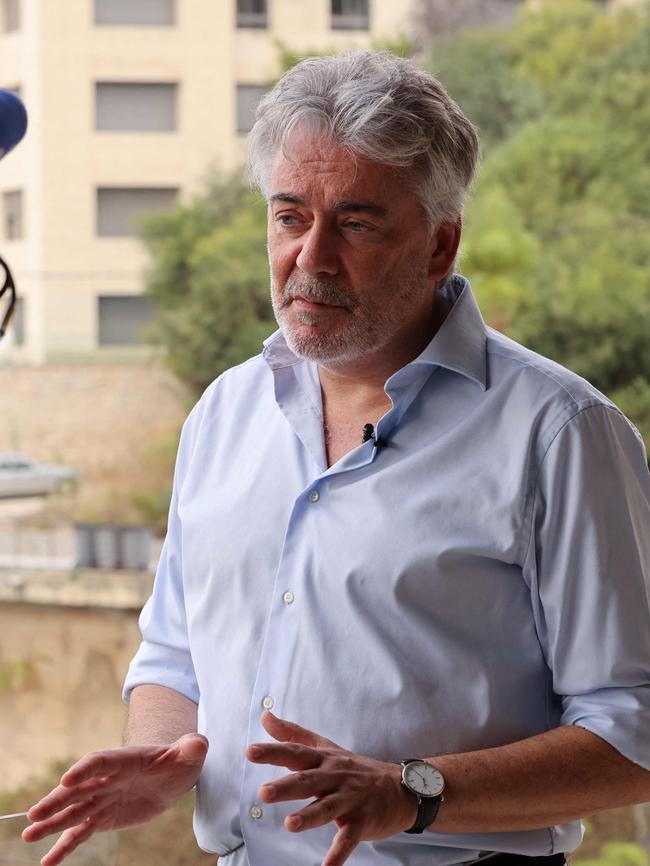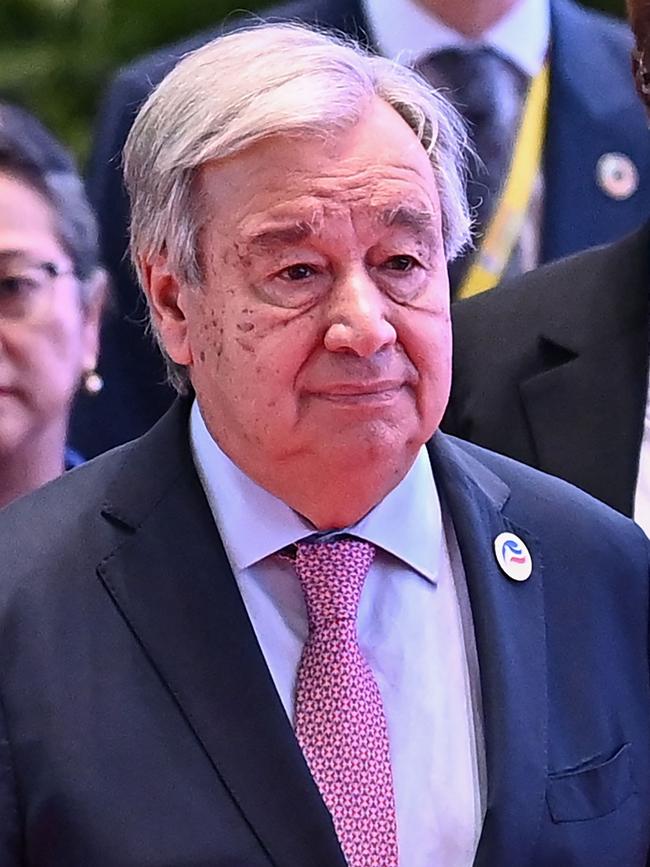
Israel wants to win but the US, Britain, Australia and the UN want to restore the status quo ante of repeating cycles of ceasefires and wars. That would re-create the conditions that enabled the worst attack on Jews since the Holocaust. Tensions between Israel and the UN have intensified. The latest flare-up concerns the UN Interim Force in Lebanon.
When UN collective security proved inept, it invented peacekeeping as a stopgap expedient between war and peace. Peacekeepers were not to keep the peace but to facilitate combatants to maintain an agreed ceasefire. If one side wanted to resume fighting, like Egypt in 1967, UN peacekeepers became surplus to requirement.
UNIFIL was deployed to stabilise southern Lebanon after the Israeli invasion in 1978. The decision was imposed on a reluctant UN by Security Council members who assuaged its concerns by putting interim in the title. Israel launched major incursions into Lebanon in 1982 and 2006, validating the original UN doubts. The result of UNIFIL’s impotence is lasting damage to the UN’s reputation, with UNIFIL derided as the UN “insecurity” force in Lebanon by prime minister Menachem Begin in 1982.
National leaders, UN officials and international lawyers decry the use of force by Israel. Yet most admit, performatively, that Israel has the right to defend itself. I have yet to hear from anyone who calls for a ceasefire, de-escalation and Israeli restraint on just how Israel can prevent another October 7 by rejecting the use of lethal force.
Hamas and Hezbollah are committed to the destruction of Israel and the expulsion of all Jews from the region. Where exactly is the mythical middle on which the two sides can come to an agreed meeting point? Israel is bent on re-creating a new regional security order through deterrence based on the certainty of punishing retaliations for attacks on Israel and military dominance of the enemy – Hamas, Hezbollah, Iran – at every rung of the escalation ladder.
Having destroyed much of Hamas in Gaza, Israel has turned its attention northwards. Hezbollah was legally and morally complicit in the attacks of October 7. Its leaders were aware of Hamas’s murderous plans then, and since have launched rocket attacks on Israel as a show of solidarity with Palestinians. Israel has retaliated with strikes deep into Lebanon and booby-trapped Hezbollah operatives’ pagers and walkie-talkies.

In September the Israel Defence Forces notified UNIFIL of the intention to undertake limited ground incursions into Lebanon. The Hezbollah alliance holds 61 of the 128 elected seats in Lebanon’s parliament, a drop of 10 and loss of majority from 2018 to 2022. The stranglehold on Lebanese affairs has allowed Hezbollah to turn Lebanon into a mafia state, with human rights groups accusing it of “state plunder, drug trafficking, organised crime and the killing of critics”. Like Hamas in Gaza, Hezbollah bears responsibility for the immiseration of Lebanon.
After Israel’s 2006 incursion into Lebanon, UN Security Council Resolution 1701 stipulated Israel withdraw and Hezbollah move north of the Litani River. UNIFIL would enforce a 30km-deep buffer zone “free of any armed personnel, assets and weapons other than those of the Lebanese authorities and UNIFIL”.
Unable to disarm and move Hezbollah beyond the Litani, UNIFIL failed to stop southern Lebanon becoming a launch pad for attacks on Israel. Hezbollah has operated openly in the area, firing rockets and displacing Israelis from their homes. It has hidden its prohibited activities behind the environmental group Green Without Borders, building tunnels and ammunition stores and conducting weapons training and patrols near the border, according to the US Treasury.
Hezbollah’s military presence expanded within sight of UNIFIL, with tunnels just 100m away. The Wall Street Journal detailed a Hezbollah-built house filled with guns, mortars, antitank missiles and grenades.

Having lost the confidence of Israel as an impartial mediator, the UN cannot exercise a moderating influence on Israeli actions. Israel has declared Secretary-General Antonio Guterres persona non grata. With the recurrence of hostilities, UNIFIL’s presence is an obstacle to Israel’s war aims. With UNIFIL’s failure to enforce Resolution 1701 on Hezbollah, Israel has the legal and moral right to remove the cross-border threat by securing the area up to the Litani River.
Several peacekeepers have been wounded as UN positions have been hit accidentally by Israel. Prime Minister Benjamin Netanyahu has demanded that UNIFIL peacekeepers move out of harm’s way in “combat areas”, saying peacekeepers are little more than potential hostages or human shields for Hezbollah. But UNIFIL takes orders from Guterres, not Netanyahu. As it is not on Israeli territory, Israel cannot order its evacuation. Israel is prohibited from attacking UNIFIL personnel but is under no obligation proactively to protect the peacekeepers.
Ramesh Thakur is emeritus professor at the Crawford School, Australian National University and a former assistant secretary-general of the UN.





In the jungle of international geopolitics, Israel’s wars with Hamas and Hezbollah offer useful lessons on the liberal illusions of peace, the limits of international law and diplomacy, and the logic of strategic deterrence.